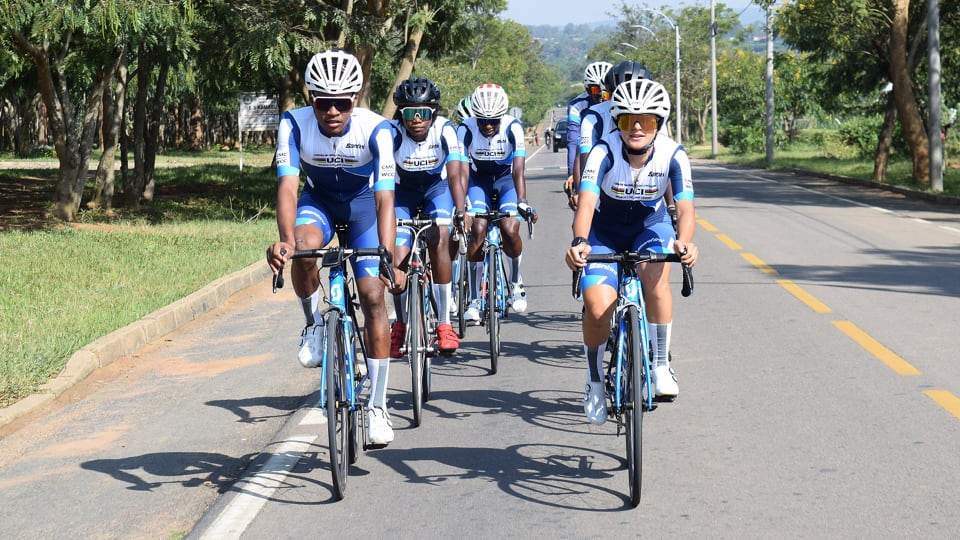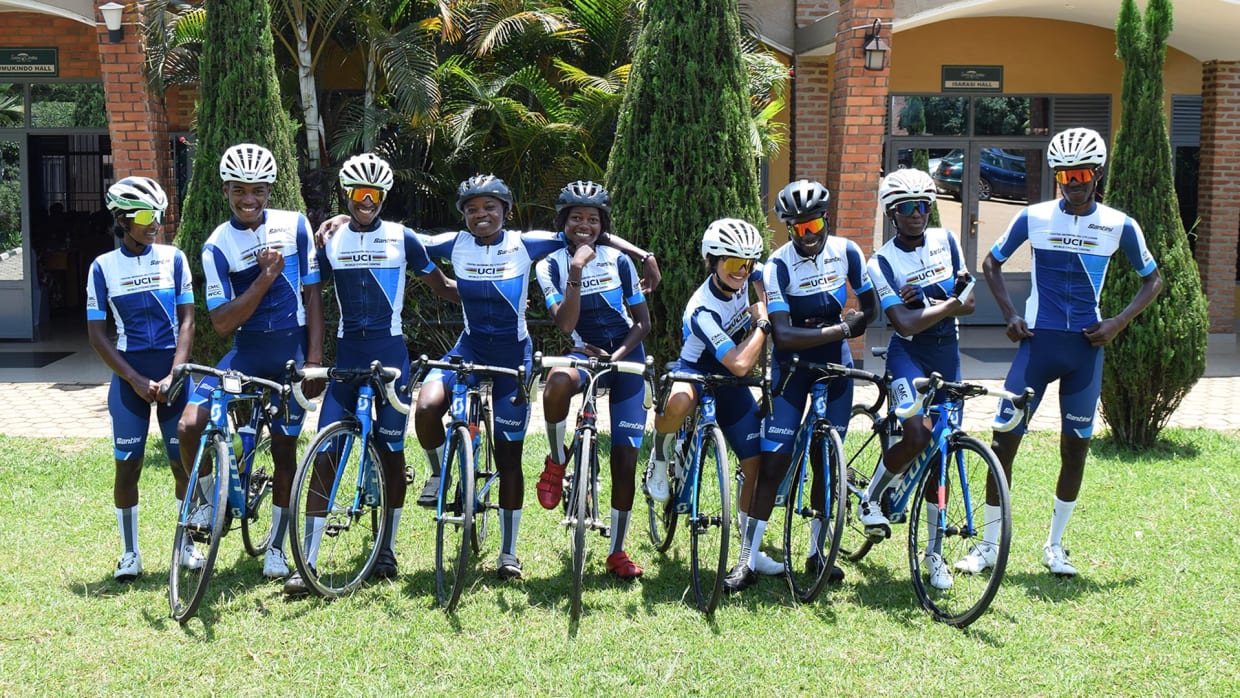Date: Tuesday, 17 June 2025
Long-term UCI development initiatives yield early returns.

When it comes to the development of African cycling, the Union Cycliste Internationale (UCI) emphasises that it’s a long, steady climb and not a sprint.
And yet by almost any measure, 2024 was already a standout year for the continent.
In July, Eritrean cyclist Biniam Girmay became just the third African to win a stage of the Tour de France (and first from outside of South Africa), while a month later no fewer than 26 African cyclists, including a record 14 women, competed at the Olympic Games Paris 2024.
Throughout the year, momentum continued to build towards Kigali (Rwanda) 2025, which is set to become the first UCI Road World Championships to be held on African soil in the competition’s 103-year history.
The UCI has long invested in the sport in Africa, which has historically been hindered by a lack of funding, access to equipment, opportunities to compete at elite competitions, technical training and more. Following the announcement of the Kigali event, the UCI has only intensified its efforts – and on multiple fronts.
Together with the UCI, the NOCs have been putting Olympic Solidarity grants to effective use in Africa, in particular those tailored to Youth Athlete Development (YAD), Development of National Sports Systems (DNSS) and Technical Courses for Coaches (TCC), as well as a number of individual scholarships for coaches.

All four were active in 2024, with the joint UCI/Olympic Solidarity programme Africa 2025, created under the YAD umbrella, helping NOCs support their athletes with training and competition opportunities through targeted support via the IFs. The African nations of Cape Verde, Eritrea and Zimbabwe all took advantage of the programme, as well as of the Technical Courses for Coaches and Development of National Sports System programmes, which support the short- and long-term development of coaches, officials and the overall sport system. Individual scholarships were given to coaches to attend sport sciences training programmes or cycling-specific training.
“Every year we collaborate closely with the IOC and the NOCs to best support developing cycling in different countries,” said Jean-Jacques Henry, Education and Talent Detection Manager at UCI. “And when it aligns well with the UCI strategy, we can create a comprehensive plan with many different funds to make sure it’s not just a drop in the bucket. We believe it’s better to pool our resources to have a bigger overall impact on the development and progression of cycling,” said Henry. “The results come quicker, and, in the end, the national federations can grow by themselves if we invest enough money.”
African athletes, coaches, mechanics and officials have all benefited from UCI assistance over the years, including Eritrean hero Girmay, who was scouted as a teenager at the African Junior Championships in 2018 before being invited to train at the World Cycling Centre (WCC) in Aigle, Switzerland. Girmay also received assistance from Olympic Solidarity as a scholarship-holder for Paris 2024.
Other top African riders are increasingly being tapped for mentorship and coaching roles, such as those nurtured through the Technical Courses for Coaches programme and individual scholarships.
One such example is Olympian Tsgabu Grmay of Ethiopia, who recently retired from a successful professional career that began in 2011 for Team UCI.
“I have a long-term plan to apply what I learn with my experience to help the youth and African cycling to make it greater and bring more champions,” Grmay said during a visit to Olympic House in Lausanne in 2024. “I’m really keen to do the job and the work and to prove to the world that we still have more to show.”
It’s a sentiment shared by fellow TCC participant Violette Irakoze Neza of Rwanda, herself a former pro rider currently working with her National Federation as a coach of male and female youth cyclists. Neza said she hopes to have a positive impact on all riders getting started in the sport in Africa, but especially girls.
“They need to meet other girls who can become their role models, who they can learn from,” she said. “I’m going to keep motivating the girls, showing them it’s possible. Start by having fun cycling, after that they can go far.”
Just how far African cycling can go remains to be seen. But thanks to an abundance of talented athletes, excellent development initiatives implemented in a collaborative and comprehensive way by numerous sports organisations, and the global spotlight about to shine on Kigali 2025, the progress seen in 2024 is only expected to accelerate in the years to come.